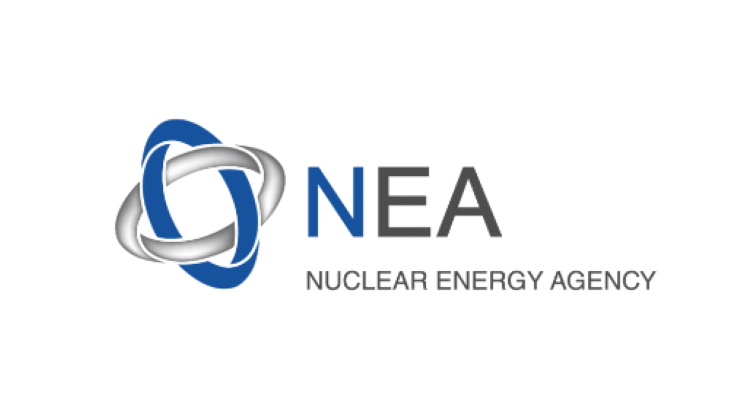"The coronavirus (COVID-19) pandemic has had significant impacts on the global economy and energy sector," the NEA said. "It has also underlined the importance of electricity reliability and resilience during major disruptions. With governments considering a broad range of options for economic recovery and job creation, it is becoming increasingly clear that stimulus packages have the opportunity to support energy systems that both fulfill these criteria while meeting long-term environmental goals and energy security."
The NEA said countries should invest in the creation of a modern, resilient infrastructure that promotes stable high value jobs for equitable and sustainable economic development. The new policy briefs highlight that investment in nuclear energy is proven to create a large number of highly skilled jobs, deliver widespread growth along with energy independence and security of supply, and helps build resilience against geopolitical shocks.
The four policy briefs are:
- Nuclear power and the cost-effective decarbonisation of electricity systems: This paper says that post-pandemic recovery plans to reconcile climate objectives with economic goals need to put system costs at the heart of energy policy. Moving to a carbon neutral electricity system without nuclear power would significantly increase system costs and threaten security of supply. Achieving cost-effective decarbonisation requires structural reform of the electricity market.
- Creating high-value jobs in the post-COVID-19 recovery with nuclear energy projects: The post-COVID-19 economic recovery is a perfect opportunity to create jobs and economic development while continuing to move ahead with the energy transition. Investing in nuclear energy creates a large number of high-skilled jobs, accelerates the transition to a low-carbon economy, and increases energy resilience. Nuclear energy projects, it says, are a proven way to create large numbers of long-term, high-skilled domestic jobs that pay premium wages. Such projects also provide high spill-over investment into the local and regional economy.
- Unlocking financing for nuclear energy infrastructure in the COVID-19 economic recovery: This says governments should incentivise investments in resilient low-carbon energy infrastructure, such as nuclear energy, in the aftermath of the COVID-19 pandemic. Proper policy and market frameworks to incentivise investment in essential infrastructure that supports low-carbon electricity security and economic development are needed. Transitional, targeted government support for nuclear energy projects will be indispensable to unlock the benefits of nuclear energy in the post-COVID-19 economic recovery. Government support can and should be leveraged to attract cost-effective private funding to deliver nuclear energy infrastructure projects. It says there is currently a window of opportunity for governments to support sustained cost reductions in nuclear energy projects through timely new build decisions - thus reinforcing the process of learning by doing and allowing these designs to move along their learning and cost curves.
- Building low-carbon resilient electricity infrastructures with nuclear energy in the post-COVID-19 era: Electricity security is an essential public necessity, at the same level as food security and access to healthcare. Nuclear energy is a key contributor to electricity security and already contributes positively to building a low-carbon resilient infrastructure at the plant and system levels. Nuclear energy, both new nuclear projects and the long-term operation of existing reactors, can play a key role in the post-COVID-19 economic recovery efforts by boosting economic growth in the short term, while supporting, in a cost-effective manner, the development of a low-carbon resilient electricity infrastructure in the long term.
"We must work together, through both individual and national actions across the world, to see the current pandemic crisis concluded," said NEA Director General William Magwood. "Similarly, we must work collectively to enable new energy technologies to be brought forward and used around the world, for safety to remain high and the public and workers to be protected, and to support economic growth, prosperity and improvements in the quality of life in both OECD countries and emerging economies without sacrificing the global environment."
Agneta Rising, director general of World Nuclear Association, welcomed the "timely publication" of the policy briefs "on what will be a defining issue for years to come".
"Nuclear energy is a pillar of stability; nuclear reactors are the low-carbon backbone of many economies around the world, quietly operating in the background, providing incredible amounts of electricity so that we can focus on protecting lives and livelihoods during these uncertain and unsettling times," Rising said.
"Nuclear energy can play a key role in the post-COVID recovery by boosting economic growth, creating jobs and supporting the development of a cost-effective, low-carbon and resilient electricity infrastructure. There is a window of opportunity for governments to support sustained cost reductions in nuclear energy projects, through timely new-build decisions. The global nuclear industry is ready to do its part to make sure the world that follows this pandemic is stronger, cleaner and more resilient than ever before."
The nuclear industry, led by World Nuclear Association, has set the Harmony goal for nuclear energy to provide at least 25% of global electricity by 2050. This will require trebling nuclear generation from its present level. Some 1000 GWe of new nuclear generating capacity will need to be constructed by then to achieve that goal. The Association has identified three requirements to achieve this: a level playing field that values reliability and energy security; a harmonised nuclear regulatory environment; and a holistic safety paradigm for the entire electricity system.





_52351.jpg)


_15863.jpg)






